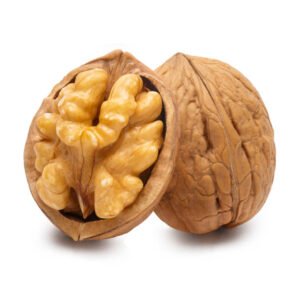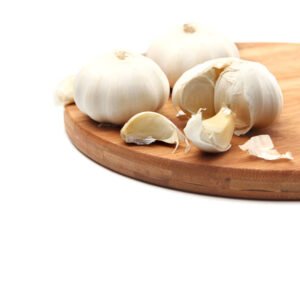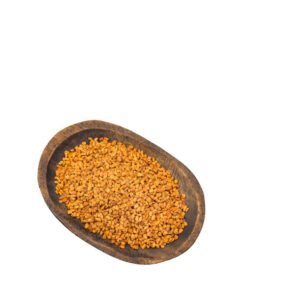Unlock the potential of top 5 cholesterol-lowering plants and support a healthier heart naturally. Explore the power of plants in promoting heart health and learn how incorporating these beneficial plants into your diet may contribute to reducing cholesterol. read article to explore the benefits of oats, walnuts, garlic, green tea, and fenugreek, and how they can support your journey towards a healthier heart.
 Oats and Their Role in Lowering Cholesterol Levels
Oats and Their Role in Lowering Cholesterol Levels
In the quest for maintaining good health, managing cholesterol levels plays a crucial role. High cholesterol levels can contribute to various cardiovascular diseases. While medications are available to address this issue, incorporating dietary changes can also make a significant impact. One such dietary addition is oats, which have gained recognition for their potential in reducing cholesterol levels. This article explores the role of oats in lowering cholesterol and highlights their benefits for cardiovascular health.Nutritional Profile of Oats
Oats are rich in several nutrients, including:- Dietary fiber, particularly beta-glucan
- Vitamins such as vitamin B1 (thiamine), vitamin B5 (pantothenic acid), and folate
- Minerals like manganese, phosphorus, magnesium, and zinc
- Antioxidants, including avenanthramides
What Makes Oats Effective in Lowering Cholesterol?
Oats contain a unique type of soluble fiber called beta-glucan, which has been widely studied for its cholesterol-lowering properties. Beta-glucan forms a gel-like substance in the digestive tract, which binds to cholesterol and prevents its absorption into the bloodstream. By reducing the absorption of cholesterol, beta-glucan helps to lower overall cholesterol levels, particularly the harmful low-density lipoprotein cholesterol (LDL or “bad” cholesterol).Effects on LDL Cholesterol:
Numerous studies have demonstrated the positive impact of oats on LDL cholesterol levels. One meta-analysis that reviewed 58 clinical trials found that consuming oats regularly can lead to a significant reduction in LDL cholesterol. The researchers concluded that consuming approximately 3 grams of beta-glucan from oats per day can lower LDL cholesterol by around 5-10%. These findings highlight the potential of oats as a natural and accessible way to manage cholesterol levels.Additional Cardiovascular Benefits:
Beyond its cholesterol-lowering effects, oats offer other cardiovascular benefits. The fiber in oats helps regulate blood sugar levels, promoting stable energy levels and reducing the risk of developing type 2 diabetes. Oats are also rich in antioxidants, which protect against oxidative stress and inflammation, both of which contribute to heart disease. Additionally, oats contain important nutrients like magnesium, potassium, and folate, which support heart health.Incorporating Oats into the Diet:
Including oats in your daily diet is a simple and effective way to harness their cholesterol-lowering benefits. Here are some suggestions on how to incorporate oats into your meals:- Start your day with oatmeal:
- Use oats in baking:
- Create overnight oats:
- Blend oats into smoothies:
Contraindications:
Oats are generally considered safe for regular dietary consumption. However, individuals with gluten allergies should be cautious with oat products as they may become contaminated with gluten during processing. Additionally, there may be interactions with certain medications, so it is important to consult your doctor before consuming significant amounts of oats.Conclusion:
Oats offer a natural and nutritious approach to managing cholesterol levels and promoting cardiovascular health. The beta-glucan fiber present in oats is known to lower LDL cholesterol, reducing the risk of heart disease. Additionally, oats provide a range of other benefits, including stabilizing blood sugar levels and offering antioxidant and anti-inflammatory properties. By incorporating oats into your daily diet through various creative ways, you can take a proactive step towards maintaining healthy cholesterol levels and improving your overall well-being.The Role of Nuts in Lowering Cholesterol Levels
The Link between Nuts and Cholesterol:
Numerous studies have suggested that regular consumption of nuts can contribute to a reduction in cholesterol levels, particularly the “bad” low-density lipoprotein (LDL) cholesterol. Nuts are rich in heart-healthy unsaturated fats, including monounsaturated and polyunsaturated fats. These fats have been shown to have a positive impact on blood lipid profiles, including cholesterol levels.Unsaturated fats found in nuts have several mechanisms that can help lower LDL cholesterol. Firstly, they can replace saturated fats and trans fats in the diet, which are known to raise LDL cholesterol levels. Secondly, these healthy fats can help improve the ratio of LDL to high-density lipoprotein (HDL) cholesterol, which is often referred to as the “good” cholesterol. This balance is crucial for maintaining cardiovascular health.Additionally, nuts contain phytosterols, plant compounds that have a structure similar to cholesterol. Phytosterols compete with cholesterol for absorption in the digestive system, leading to a decrease in cholesterol absorption and consequently lowering cholesterol levels in the body.Types of Nuts and their Cholesterol-Lowering Effects:
Various types of nuts have been studied for their cholesterol-lowering effects. Here are a few examples:- Walnuts:
- Almonds:
- Pistachios:
- Cashews:
- Pecans:
Incorporating Nuts into Your Diet:
To reap the cholesterol-lowering benefits of nuts, it is important to consume them in moderation as part of a balanced diet. Here are some tips for incorporating nuts into your daily routine:- Snack on a handful of nuts as a nutritious alternative to processed snacks.
- Sprinkle chopped nuts over salads, yogurt, or oatmeal for added texture and flavor.
- Use nut butters, such as almond butter or peanut butter, as spreads or in smoothies.
- Incorporate crushed or ground nuts into baked goods, such as muffins or bread.
- Enjoy a mixed nut assortment as a healthy snack option.
Contraindications:
Walnuts are generally safe for regular consumption but can cause allergic reactions in some individuals. Also, due to their high calorie content, they should be consumed in moderation, especially by individuals on a calorie-controlled diet. As some people may have nut allergies or intolerances, it is recommended to consult a doctor before including them in your diet.Conclusion:
Nuts offer a tasty and convenient way to support heart health by helping to lower cholesterol levels. Their high content of unsaturated fats, fiber, phytosterols, and other beneficial nutrients make them an excellent addition to a balanced diet. However, it is essential to remember that nuts are calorie-dense, so portion control is crucial. Consult with a healthcare professional or a registered dietitian to determine the appropriate amount of nuts to include in your diet based on your individual health needs. By incorporating a variety of nuts into your daily routine, you can take a delicious step toward maintaining a healthy heart.Garlic and Its Role in Lowering Cholesterol Levels
The Active Compounds:
Garlic contains various bioactive compounds that contribute to its cholesterol-lowering properties. One of the key compounds found in garlic is allicin, which is responsible for its distinct smell and flavor. Allicin has been shown to inhibit the production of cholesterol in the liver and reduce the oxidation of LDL (low-density lipoprotein) cholesterol, commonly referred to as “bad” cholesterol.Cholesterol-Lowering Effects:
Studies have consistently demonstrated the cholesterol-lowering effects of garlic. Consumption of garlic, either raw or in supplement form, has been associated with a reduction in total cholesterol levels, particularly LDL cholesterol. Additionally, garlic has been found to increase the levels of HDL (high-density lipoprotein) cholesterol, known as “good” cholesterol, which helps remove LDL cholesterol from the bloodstream.Mechanisms of Action:
The cholesterol-lowering mechanisms of garlic are multifaceted. Allicin, along with other sulfur-containing compounds found in garlic, inhibits enzymes involved in cholesterol synthesis, thereby reducing cholesterol production. Furthermore, garlic enhances the activity of certain enzymes that promote the breakdown of cholesterol and its elimination from the body.Antioxidant and Anti-inflammatory Properties:
Beyond its direct impact on cholesterol levels, garlic possesses potent antioxidant and anti-inflammatory properties. Oxidative stress and chronic inflammation are closely linked to cardiovascular diseases, including atherosclerosis. Garlic’s antioxidant compounds help neutralize harmful free radicals and reduce oxidative stress, while its anti-inflammatory effects help alleviate inflammation in the arteries, contributing to better heart health.Other Health Benefits:
In addition to its cholesterol-lowering effects, garlic offers several other health benefits. It has been associated with improved blood pressure control, reduced risk of blood clot formation, and enhanced immune function. Garlic’s antimicrobial properties also make it effective against certain infections, including those caused by bacteria and fungi.Incorporating Garlic into Your Diet:
To harness the cholesterol-lowering benefits of garlic, consider incorporating it into your daily diet. Fresh garlic cloves can be added to various dishes, such as stir-fries, soups, sauces, and salad dressings. Crushing or chopping garlic cloves activates the enzymatic reactions necessary for the formation of allicin. Alternatively, garlic can be consumed in supplement form, but it’s important to follow the recommended dosage and consult with a healthcare professional.Contraindications:
Garlic is generally safe for regular dietary consumption. However, it may cause gastrointestinal discomfort, allergies, or interactions with certain medications, including anticoagulants. Additionally, individuals undergoing medical treatment or those with clotting disorders should consult a doctor before consuming garlic in large amounts or taking garlic supplements.Conclusion:
Garlic is more than just a culinary ingredient; it offers a range of health benefits, including its role in reducing cholesterol levels. The active compounds present in garlic, particularly allicin, contribute to its cholesterol-lowering effects by inhibiting cholesterol synthesis, reducing LDL cholesterol oxidation, and promoting the removal of cholesterol from the body. Incorporating garlic into your diet, along with a healthy lifestyle, can help support cardiovascular health and contribute to overall well-being. However, it’s advisable to consult with a healthcare professional before making any significant dietary changes or starting new supplements.For more information about garlic, click hereGreen Tea and Its Role in Lowering Cholesterol
Understanding Cholesterol:
Cholesterol is a waxy substance found in our bodies and certain foods. While it is essential for various bodily functions, elevated levels of cholesterol, particularly low-density lipoprotein (LDL) cholesterol, often referred to as “bad” cholesterol, can contribute to the development of heart disease. High cholesterol levels can lead to the accumulation of plaque in the arteries, restricting blood flow and increasing the risk of cardiovascular problems.Green Tea and Cholesterol:
Green tea is derived from the Camellia sinensis plant and contains a group of beneficial compounds known as catechins, with epigallocatechin gallate (EGCG) being the most abundant and potent one. These catechins have been linked to various health benefits, including their potential to help reduce cholesterol levels.Reduces Total Cholesterol:
Several studies have indicated that regular consumption of green tea can lead to a reduction in total cholesterol levels. The catechins in green tea have been shown to inhibit the absorption of cholesterol in the intestines, thereby promoting its excretion from the body.- Lowers LDL Cholesterol:
- Increases HDL Cholesterol:
Anti-Inflammatory Effects:
Inflammation within the arterial walls can exacerbate the process of plaque formation. Green tea contains polyphenols, such as EGCG, which possess anti-inflammatory properties. By reducing inflammation, green tea may help prevent the development of cardiovascular disease.Incorporating Green Tea into Your Routine:
To harness the potential benefits of green tea for cholesterol reduction, it is recommended to consume it regularly. Aim for 2-3 cups of freshly brewed green tea per day. Avoid adding excessive sugar or cream to maximize its health advantages.Contraindications:
Green tea is generally considered safe for regular consumption. However, individuals sensitive to caffeine should limit their intake as green tea contains a moderate amount of caffeine. Additionally, pregnant or breastfeeding women and individuals with kidney or liver conditions should consult a doctor before consuming significant amounts of green tea or taking green tea extract supplements.Conclusion:
Green tea has emerged as a promising natural beverage that may aid in reducing cholesterol levels. The catechins and other beneficial compounds present in green tea contribute to its cholesterol-lowering properties. Regular consumption of green tea, along with a healthy lifestyle that includes a balanced diet and regular exercise, can help promote cardiovascular health. However, it is important to note that green tea should not be viewed as a standalone solution, and consulting with a healthcare professional is advised for individuals with pre-existing medical conditions or those on specific medications. Embracing green tea as part of a heart-healthy lifestyle can contribute to overall well-being and the maintenance of optimal cholesterol levels.Fenugreek and Its Role in Lowering Cholesterol Levels
The Role of Fenugreek:
Fenugreek contains a range of bioactive compounds, including saponins, fibers, and flavonoids, which contribute to its potential cholesterol-lowering effects. Here’s how fenugreek may help reduce cholesterol levels:Fiber Content:
Fenugreek is rich in soluble fiber, which can bind to cholesterol in the digestive system and prevent its absorption into the bloodstream. This action can lead to a decrease in total cholesterol and LDL cholesterol levels.Steroidal Saponins:
Fenugreek contains steroidal saponins, such as diosgenin, which may inhibit cholesterol absorption and promote the excretion of bile acids. This mechanism encourages the liver to use excess cholesterol to produce more bile acids, resulting in reduced cholesterol levels.Antioxidant Properties:
Fenugreek possesses potent antioxidant properties due to its flavonoid content. Antioxidants help prevent the oxidation of LDL cholesterol, which is a key step in the development of plaque formation in arteries. By reducing LDL oxidation, fenugreek may contribute to improved cardiovascular health.Scientific Evidence:
Several studies have investigated the cholesterol-lowering effects of fenugreek. In a randomized controlled trial involving individuals with high cholesterol levels, fenugreek supplementation resulted in significant reductions in total cholesterol, LDL cholesterol, and triglyceride levels, compared to a placebo group. Similar findings were observed in other clinical studies, further supporting fenugreek’s potential in cholesterol management.Incorporating Fenugreek into Your Diet:
Fenugreek can be consumed in various forms, including seeds, powder, capsules, and as an ingredient in culinary dishes. Here are some practical ways to include fenugreek in your diet:- Seeds:
- Powder:
- Supplements:
Contraindications:
Fenugreek is generally safe for regular dietary consumption. However, it may cause allergic reactions in some individuals, especially those with allergies to plants in the Fabaceae family. It can also interact with certain medications and may affect glycemic control, so it is important to consult a doctor before taking fenugreek supplements or consuming large quantities of this plant.Conclusion:
Fenugreek is a versatile herb with potential benefits in promoting heart health by aiding in cholesterol reduction. Its high fiber content, steroidal saponins, and antioxidant properties contribute to its cholesterol-lowering effects. While fenugreek can be a valuable addition to a heart-healthy diet, it is essential to consult with a healthcare professional before incorporating it into your routine, especially if you have any underlying medical conditions or are taking medications. Embracing a holistic approach to heart health, including a balanced diet, regular exercise, and lifestyle modifications, will provide the best results in maintaining healthy cholesterol levels.For more information about green tea, click hereBefore starting any new treatment or adding supplements to your routine, it is always recommended to consult a doctor or healthcare professional. They can provide personalized advice, taking into account your medical history and any existing medications or conditions. Addressing these options in an appropriate medical context is important to ensure safe and effective use of the mentioned plants.Click here if you want to see more articles from the Top 5 categoryReference
- Schrijver Remi, Fremaut Dirk, Verheyen Annick – Cholesterol-Lowering Effects and Utilization of Protein, Lipid, Fiber and Energy in Rats Fed Unprocessed and Baked Oat Bran – https://doi.org/10.1093/jn/122.6.1318
- Estruch, R., Ros, E., Salas-Salvadó, J., et al. (2018). Primary Prevention of Cardiovascular Disease with a Mediterranean Diet Supplemented with Extra-Virgin Olive Oil or Nuts. New England Journal of Medicine, 378(25), 2441-2442.
- Khoo, Y. S., & Aziz, Z. (2009). Garlic supplementation and serum cholesterol: A meta-analysis. Journal of Clinical Pharmacy and Therapeutics, 34(2), 133-145.
- Kim, A., Chiu, A., Barone, M. K., et al. (2016). Green tea catechins decrease total and low-density lipoprotein cholesterol: a systematic review and meta-analysis. Journal of the American Dietetic Association, 111(11), 1720-1729.
- Movahedian, A., et al. (2017). The effects of fenugreek seed powder on lipid profiles: A randomized controlled trial. Journal of Clinical Lipidology, 11(4), 1061-1069.

 Oats and Their Role in Lowering Cholesterol Levels
Oats and Their Role in Lowering Cholesterol Levels


